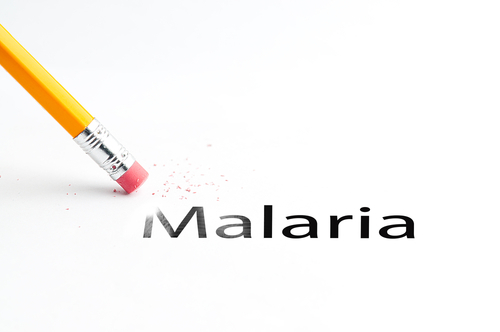Cabinet apprised of declining Malaria, TB incidences
IANS Sep 21, 2017
The Union Cabinet was on Wednesday apprised of the progress made in the country's health sector, including the decline of Malaria Annual Parasite Incidence from 1.10 in 2011 to 0.84 in 2016.

"The 12th Plan target in respect of Malaria has been achieved and the API has been kept below 1 case per 1,000 population," said Union Health Minister J.P. Nadda, adding that the Tuberculosis incidence population has reduced from 289/lakh in 2000 to 247/lakh in 2015.He said that mortality reduced from 56/lakh in 2000 to 36/lakh in 2015.Nadda told the Cabinet that Rs 113 crore has been spent in 2016-17 on maintenance of 4,560 medical devices which were not functional in various public hospitals.According to Nadda, there were a total of 7,56,000 equipment in 29,115 government medical institutions in India. However, 4,560 medical devices are not working.
"The maintenance was not being done for many medical equipment. We had started an initiative under which Rs 113 crore has been spent and all non-functional medical devices in the country's government hospitals have become functional," Nadda told media persons here.To bring down out-of-pocket expenditure, states were provided support for free drugs and setting up of drug procurement, quality assurance and IT-based supply chain management, among others."Drugs procurement, quality system and distribution streamlined through IT-based Drug Distribution Management Systems in 23 states. All states and UTs have notified policy to provide essential drugs free in public health facilities," said Nadda.
The Cabinet was informed about the introduction of Rubella vaccine in the Universal Immunisation Programme as Measles-Rubella combination vaccine to provide protection against congenital birth defects caused by the infection.The vaccine was introduced on February 5, 2017, initially in five states namely Tamil Nadu, Karnataka, Goa, Puducherry and Lakshadweep through MR vaccination campaign for children aged between nine months and 15 years.Till March 31 2017, a total of 3.32 crore children had been vaccinated in these states.Nadda said that more than 2.6 crore adults in 21 districts of Assam, Uttar Pradesh and West Bengal were provided Japanese Adult Encephalitis vaccine."To prevent morbidity and mortality in children due to rotavirus, a vaccine was introduced in Universal Immunization Programme," said Nadda, adding that free diagnostics services were also initiated.
Nadda said a name and web-based tracking system called Mother and Child Tracking System (MCTS) across all the states and union territories was started to facilitate timely delivery of the entire complement of quality Mother Child Health services.A total of 1.68 crore pregnant women and 1.31 crore children were registered in MCTS or Reproductive and Child Health portal as on March 31, 2017, said Nadda.To boost the National Family Planning Programme three new methods have been introduced, including Injectable Contraceptive DMPA (Antara)3-monthly injection."The other two are Centchroman pill (Chhaya) - non hormonal once a week pill and Progesterone-only pills (POP) for lactating mothers," he said.A new family planning media campaign has been started and a 360 degree holistic family planning campaign with a new logo launched."New anti-TB drug Bedaquiline was introduced under Conditional Access Programme (CAP) to improve outcomes of drug resistant TB treatment," said Nadda.
-
Exclusive Write-ups & Webinars by KOLs
-
Daily Quiz by specialty
-
Paid Market Research Surveys
-
Case discussions, News & Journals' summaries